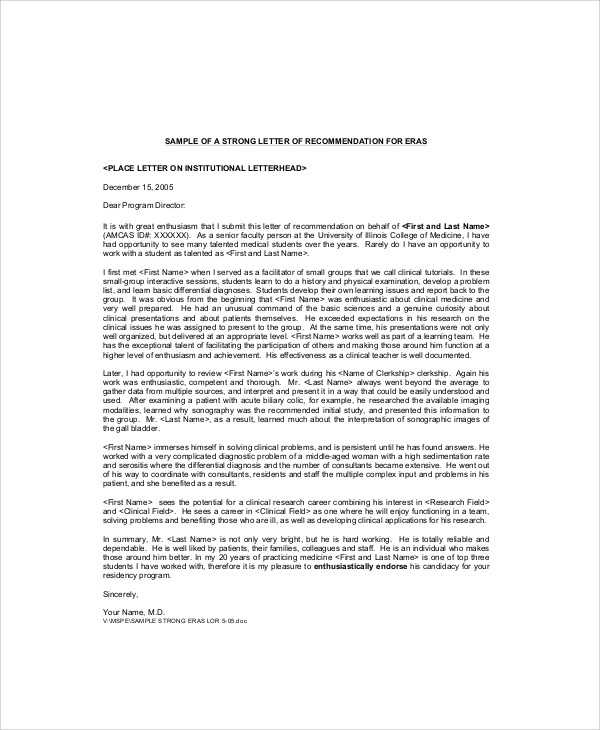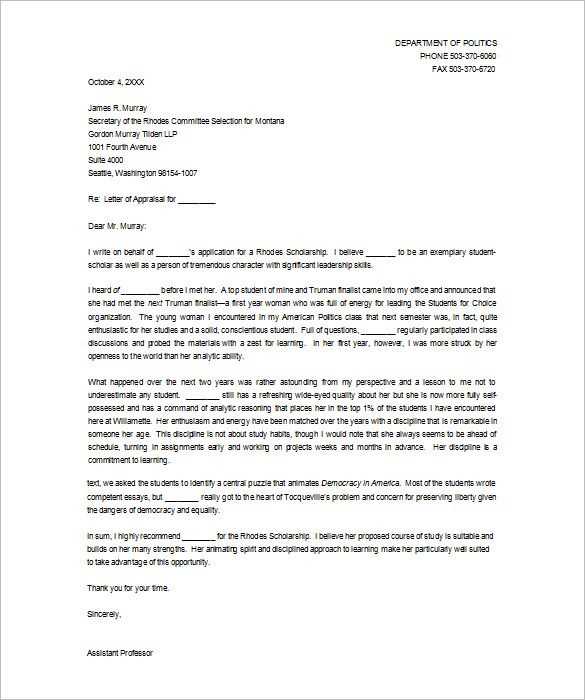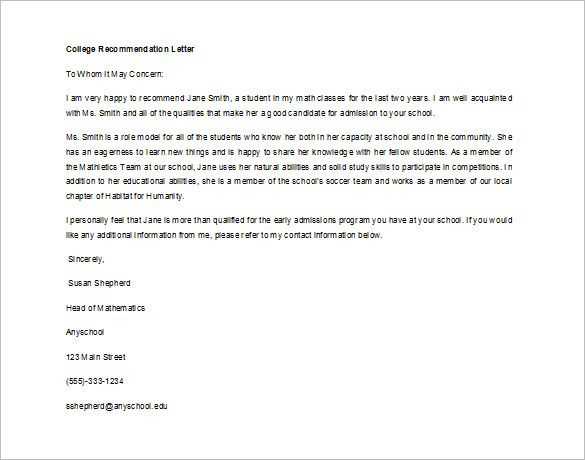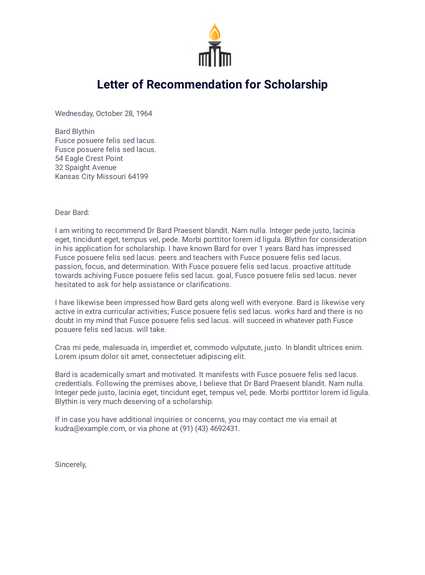College Letter of Recommendation Template for Your Needs

Writing a compelling endorsement can significantly influence a candidate’s chances in a competitive application process. Whether it’s for a scholarship, internship, or academic program, a well-structured recommendation can highlight a person’s strengths and qualifications effectively. Understanding how to organize this type of content is essential for creating an impactful statement.
Tailoring your message to the specific requirements of the institution or program is key. Personal touches and relevant details will make your endorsement stand out, ensuring the applicant is presented in the best possible light. Clarity and precision are important, but so is conveying enthusiasm and genuine support for the candidate’s potential.
Formulating the right approach requires balancing professionalism with a personal tone. This guide will walk you through the necessary components to help you create an endorsement that resonates with admission officers and other decision-makers.
Understanding the Importance of Recommendation Letters

Endorsements play a crucial role in showcasing an applicant’s character, skills, and achievements. They offer a perspective beyond what is seen on a resume or application form, providing insight into an individual’s abilities and potential from the viewpoint of someone who has observed them closely. This additional layer of evaluation can make all the difference in competitive selection processes.
In many instances, an effective endorsement can highlight qualities that might otherwise go unnoticed, such as leadership, work ethic, and personal drive. These attributes can be far more telling than grades or standardized test scores, offering a fuller picture of the individual’s readiness and fit for a specific opportunity.
Ultimately, a strong recommendation can influence the decision-making process significantly, helping applicants stand out and making their case more compelling to those in charge of reviewing applications. Crafting such a statement requires both understanding the applicant’s strengths and the ability to communicate them clearly and persuasively.
Key Elements of a Strong College Recommendation
A well-crafted endorsement provides a comprehensive and compelling case for why an applicant is a great fit for a particular opportunity. The effectiveness of such a document hinges on several key elements that, when combined, create a powerful and convincing message. These components should work together to provide a clear picture of the individual’s strengths, character, and potential contributions.
Each part of the endorsement serves a unique purpose, from introducing the applicant to detailing their qualifications and achievements. A strong recommendation highlights both personal and professional qualities in a balanced way, ensuring the reader understands not only the applicant’s skills but also their suitability for the desired role.
| Element | Description |
|---|---|
| Introduction | Briefly introduces the applicant, their relationship with the writer, and the purpose of the recommendation. |
| Personal Qualities | Highlights the individual’s character traits, such as integrity, work ethic, and dedication. |
| Academic or Professional Achievements | Details relevant accomplishments, skills, and contributions that demonstrate the applicant’s qualifications. |
| Specific Examples | Provides concrete examples of the applicant’s strengths in action to support claims made about them. |
| Conclusion | Summarizes the endorsement and emphasizes why the applicant is a strong candidate for the opportunity. |
How to Structure Your Recommendation

Proper organization is key when crafting an effective endorsement. The structure should allow the reader to quickly grasp the applicant’s strengths, achievements, and personal qualities in a clear and logical progression. By following a well-defined format, you ensure that the key points are highlighted and the endorsement flows naturally from one idea to the next.
The introduction should establish the writer’s relationship with the candidate, providing context for the recommendation. This is followed by a detailed examination of the applicant’s skills, accomplishments, and personal traits. The conclusion should reiterate the applicant’s suitability and provide a final, compelling statement of support.
Here is a simple structure you can follow:
| Section | Description |
|---|---|
| Introduction | State who you are, your relationship with the applicant, and why you are writing the endorsement. |
| Skills and Achievements | Highlight specific accomplishments and skills that make the individual stand out. |
| Personal Attributes | Describe the applicant’s character, work ethic, and qualities that make them a great candidate. |
| Specific Examples | Support your claims with real-life instances of how the applicant has demonstrated their abilities. |
| Conclusion | Summarize your support and clearly state why the applicant is well-suited for the opportunity. |
Personalizing Your Recommendation Template
To make your endorsement stand out, it is important to tailor it to the specific individual and opportunity. A generic statement will lack the impact needed to highlight an applicant’s unique qualities. Personalization allows you to focus on what makes the person exceptional and relevant to the position or program they are applying for.
Including specific details about the applicant’s achievements, experiences, and character traits will create a more compelling and genuine message. Instead of using broad phrases, incorporate examples that showcase their abilities in action. This personal touch not only strengthens the overall recommendation but also demonstrates your authentic belief in the applicant’s potential.
For a truly effective endorsement, customize your content to reflect the particular requirements of the program or role the individual is seeking. This approach will help ensure your message resonates with those reviewing the application.
Common Mistakes to Avoid in Letters
When writing an endorsement, it’s easy to fall into certain traps that can undermine the effectiveness of your message. Even with the best intentions, small errors can make the recommendation seem less credible or impactful. Being aware of these common mistakes can help ensure that your statement is as compelling and professional as possible.
One of the biggest errors is being overly vague. General statements like “This person is a great candidate” or “They are very hardworking” lack the specificity that makes an endorsement powerful. Instead, provide concrete examples that demonstrate the applicant’s skills, achievements, and character traits in action.
Another common mistake is failing to tailor the recommendation to the specific opportunity. A generic endorsement that doesn’t address the requirements of the role or program will appear less relevant. Take the time to highlight the qualities and experiences that make the applicant an ideal fit for what they are applying for.
Additionally, it’s important to avoid exaggeration or overly inflated praise. While you want to emphasize the applicant’s strengths, be honest and realistic about their abilities. A balanced and truthful endorsement will always be more convincing than one that seems too good to be true.
Tips for Writing an Effective Recommendation
Crafting a strong endorsement requires careful attention to detail and a clear focus on the applicant’s strengths. Whether you are writing for a professional opportunity or an academic program, your goal is to present a comprehensive and persuasive case. Below are some helpful tips to ensure your endorsement is impactful and compelling.
Focus on Specificity
Avoid general statements and focus on providing specific examples that showcase the individual’s qualifications. Rather than just stating that they are a hard worker, describe a situation where they demonstrated dedication and overcame challenges. This adds credibility and depth to your recommendation.
Highlight Relevant Skills

Make sure to emphasize the skills and qualities that are most relevant to the role or program the person is applying for. If you are writing for a research position, for example, focus on their analytical abilities, attention to detail, and problem-solving skills.
- Provide concrete examples of their achievements.
- Ensure the tone is confident yet humble.
- Be clear and concise in your language.
- Tailor your recommendation to the specific opportunity.
- Show genuine enthusiasm for the applicant’s potential.
By following these tips, you can ensure your endorsement not only highlights the individual’s qualifications but also presents them in a way that aligns with the expectations of the opportunity they are pursuing.